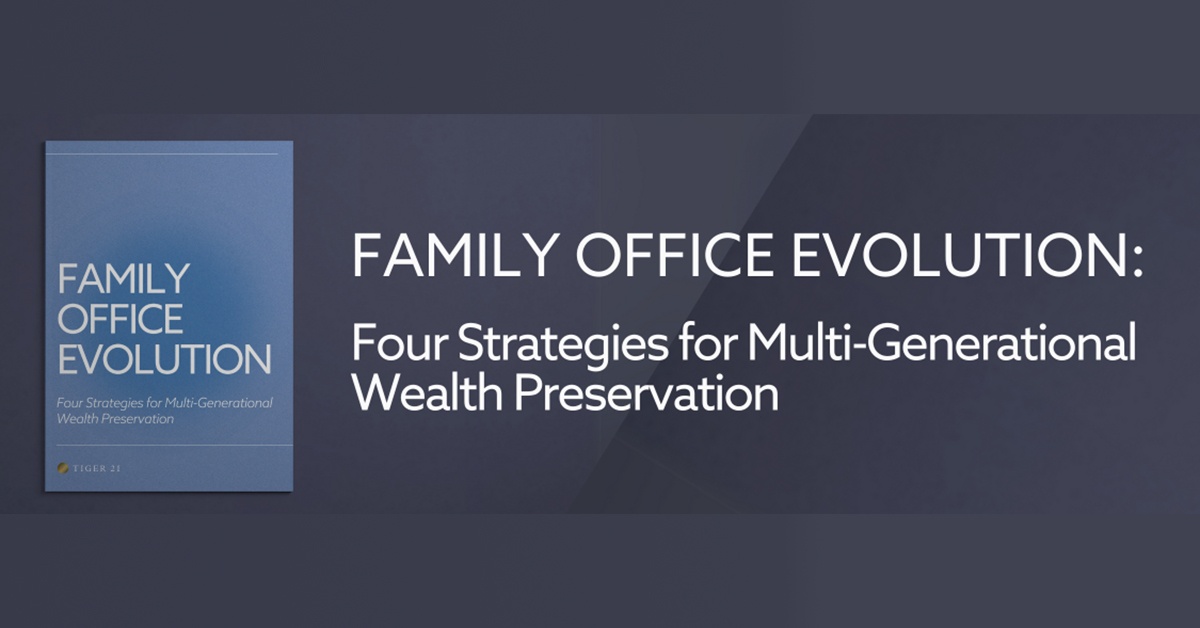How to Choose the Right Family Office

Selecting the ideal family office is a decision of paramount significance for affluent individuals and families. With plenty of options available, the process can be intricate. This blog sheds light on essential considerations that serve as a compass to guide you in making a well-informed choice. From aligning services with financial goals to evaluating expertise, navigating these aspects will empower you to find the family office that complements your unique needs.
What Makes a Family Office Successful
A successful family office is characterized by several elements that collectively ensure its effectiveness in meeting the families’ needs. First, comprehensive expertise across financial, legal, tax, and estate planning domains is essential. The ability to tailor strategies to individual family goals and values while navigating complex financial landscapes is paramount. Fostering open communication and collaboration among family members ensures a unified approach to wealth management and preservation.
Furthermore, a successful family office adapts to changing circumstances and market dynamics, maintaining a long-term perspective to secure intergenerational wealth. It cultivates a culture of discretion, privacy, and integrity, earning the trust of family members. Effective family governance structures contribute to harmony and succession planning, ensuring the family’s legacy remains intact.
A family office’s success is measured by the achievement of financial aspirations while safeguarding family unity, values, and legacy. It thrives when it seamlessly integrates financial expertise, personalized service, and commitment to the intricate needs of families across generations.
Understanding the Family Office Structure
Family office structures vary based on the complexity of financial needs and the desire for exclusivity. Single family offices (SFOs) serve a sole affluent family, offering tailored services but requiring higher costs. Multi-family offices (MFOs) pool resources among multiple families, providing shared services and broader expertise at a potentially more affordable rate. The choice depends on the level of customization, cost considerations, and collaboration within a select group of families. Learn more about SFOs versus MFOs here.

Define the Goals of the Family Office
A family office’s main goal is to serve as a strategic partner in managing the financial affairs of affluent families. Family offices tailor services to align with the priorities of the family, which can range from managing wealth across generations to ensuring philanthropic initiatives reflect the family’s values. Additionally, family offices address the critical balance between growing wealth and sustaining it. Some families prioritize investment strategies, seeking optimal returns. Others focus on strategies that protect assets against market volatility and economic uncertainties.
The family office’s role extends beyond wealth management to encompass legacy planning and intergenerational wealth transfer. By harmonizing financial goals with family dynamics and values, family offices provide an integrated approach that empowers both financial success and enduring legacies.
Consider Your Own Background
A UHNWI’s background could significantly influence the ethos and philosophy of a family office. Their professional experiences, cultural heritage, and values shape the family office’s strategic direction. For instance, a UHNWI from a finance background might prioritize rigorous risk assessment and investment diversification. Alternatively, someone with a philanthropic inclination may emphasize impactful social initiatives within the family office’s framework. Cultural values often play a role, guiding decisions on wealth preservation and intergenerational transfer. Furthermore, an UHNWI’s exposure to global markets could inspire an international approach to investment and asset allocation. The family office’s philosophy is intricately tied to the UHNWI’s background, aligning financial goals with personal convictions, and creating a tailored framework that reflects their unique journey, aspirations, and legacy considerations.
Decide Your Level of Involvement in Family Office
The level of personal involvement in a family office varies widely based on the individual’s preferences and the family’s dynamics. While advisors often interact closely with the principal or primary decision-maker, there is an increasing trend of involving the next generation. UHNWIs recognize the importance of educating heirs about wealth management, leading to more active engagement of advisors with the younger generation. This engagement can encompass financial education, mentorship, and preparing for leadership roles within the family office.
Some UHNWIs choose to maintain a direct presence in decision-making, collaborating closely with advisors, while others prefer a more hands-off approach, delegating responsibilities to advisors. The degree of interaction depends on the individual’s inclination to groom the next generation and ensure the seamless continuity of the family’s financial objectives, values, and legacy.

Planning for the Next-Generation
When contemplating the involvement of the next generation in the family office, the principal faces multifaceted considerations. It begins with assessing the heirs’ interest, aptitude, and commitment to financial management. A structured education plan that imparts financial literacy and values related to wealth stewardship is pivotal. The principal must evaluate the potential roles of the next generation, ensuring alignment with their skills and aspirations. Effective communication channels, such as family meetings, encourage open dialogue and promote unity in decision-making. Preparing heirs for leadership roles involves mentorship and gradual integration into the family office’s operations. Balancing involvement with autonomy is key, allowing the next generation to contribute while learning from experienced advisors. Ultimately, the patriarch must weigh the aspiration for continuity against the need for individual growth, fostering a harmonious transition that upholds the family’s legacy and financial aspirations.
Typical Costs Associated with Family Offices
Costs associated with establishing and maintaining a family office can depend on factors like the scope of services, complexity of financial needs, and the family’s preferences. Initial setup costs for a single-family office encompass hiring staff, building infrastructure, and implementing technology tailored to the family’s requirements. These costs can range from hundreds of thousands to several million dollars. Ongoing operational expenses include salaries, office space, technology maintenance, legal and compliance fees, and more, often averaging 1-2% of the family’s total assets under management (AUM). Multi-family offices might offer more cost-effective solutions due to shared resources and services among families, potentially reducing overall costs. It is essential to carefully evaluate the balance between customization and expenses, ensuring that the chosen family office structure aligns with the family’s financial goals.
Choosing the Right Family Office for You and Your Family
In the intricate landscape of affluent financial management, selecting the right family office is a paramount decision with far-reaching implications. By meticulously weighing factors such as services offered, alignment with family values, cost structures, and engagement with the next generation, you are poised to make a well-informed choice that resonates with your family’s unique aspirations. The ideal family office will not only offer tailored strategies but also serve as a trusted partner in navigating the complexities of wealth management. This careful selection process ensures that your family’s legacy, financial goals, and values are seamlessly woven into the fabric of the chosen family office, setting the stage for enduring financial prosperity and harmony across generations.
If you are running your single family office and looking for a peers who are also navigating the family office space, membership in TIGER 21’s learning community for UHNWIs may be a good fit for you. Learn more about our Family Office Groups here.
Download the Family Office Checklist
About TIGER 21
TIGER 21 is an exclusive global community of ultra-high-net-worth entrepreneurs, investors, and executives.
Explore the TIGER 21 Member ExperienceMember Insight Reports










